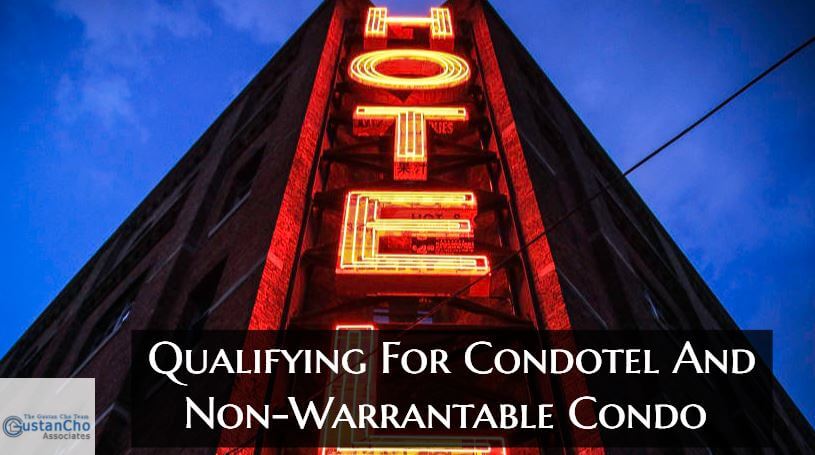Warrantable Vs NON-Warrantable Condo Guidelines

When purchasing a condominium, one important distinction is between a warrantable vs non-warrantable condo. This classification affects loan availability, the terms you might receive, and the ease of reselling the property. Here’s a detailed look at both. This guide covers warrantable versus non-warrantable condo guidelines. A condominium unit is an apartment that is individually owned by a private homeowner. There are differences between Warrantable and non-warrantable complexes. The difference between Warrantable and NON-Warrantable units is that non-warrantable condos does not meet Fannie Mae or Freddie Mac mortgage guidelines. In this article, we will cover and discuss what makes a condo a warrantable vs non-warrantable condo.
Financing and Investment on Warrantable vs Non-Warrantable Condos
Warrantable condos are easier to finance under conventional loan terms because they conform to the purchasing standards set by Fannie Mae and Freddie Mac. Non-warrantable condos may require alternative financing, such as a portfolio loan from a bank that keeps the loan on its books, typically at higher interest rates and down payment requirements.
Warrantable condos are generally easier to sell because they are eligible for more financing options. Non-warrantable condos limit the pool of potential buyers to those who can secure non-traditional financing or pay cash.
If you’re considering buying a condo, it’s crucial to determine whether it’s warrantable or non-warrantable as early as possible in your home-buying process. This information will help you understand your financing options and potential challenges in the resale market. Always consult a real estate agent or a mortgage professional with experience in dealing with condo sales to get precise guidance tailored to your situation. Get Approved for warrantable or non-warrantable condominiums
Difference Between Warrantable versus Non-Warrantable Condominiums
To be classified as warrantable, 51% or more of the condo owners need to live in the condo complex. Lenders have different guidelines on Warrantable vs NON-Warrantable Condo Units. Condominium loans are much stricter than single family home mortgage loans. This is because not only does the condominium unit buyer needs to qualify for a condominium loan but the condominium complex needs to qualify. Condo complex meet the lender’s lending guidelines and standards. Condominiums are viewed riskier to mortgage lenders. Lenders have higher credit standards apply for condominium mortgage loans.
Purchasing a Condominium With FHA Loans
Just because a home buyer is pre-approved with an FHA loan does not mean that the home buyer can go and put a purchase offer with any condominium unit. HUD will not approve condominium mortgage loans unless the condominium complex is HUD approved. To see if the condominium is FHA approved, condo complex needs to be on the HUD Condo Approved List.
If the condominium is not on this FHA approved list, ask the condominium homeowner association manager if the condominium complex is HUD approved.
If the condo complex is not HUD approved, the condo buyer can get an exemption and see if they can do a FHA spot loan approval. Otherwise, the condo buyers need to seek another condominium where the condo complex is HUD approved. Non HUD-approved condominiums can now get an exemption with an FHA spot loan approval.
Difference Between Warrantable vs Non-Warrantable Condo
Condominium complexes are either classified as warrantable condos and non-warrantable condos. A warrantable condo unit is a condominium complex that meets the eligibility for condominium mortgage loans to be sold to Fannie Mae and Freddie Mac. Residential mortgage lenders who originate condominium mortgage loans do not keep the mortgage loan on their books. Once they fund the condominium loan, they package these loans up to and sell them on the secondary market which is either Fannie Mae or Freddie Mac. In order for Fannie Mae or Freddie Mac to purchase closed loans from mortgage lenders, they need to be warrantable condo loans.
How Can I Find Out if a Condo is Warrantable vs Non-Warrantable Condo
There are so many cases where a condominium unit buyer gets a pre-approval. They do not have a solid pre-approval letter and submits a purchase offer on a condominium unit for a 5% down payment condo conventional loan. Everyone is under the assumption it is a warrantable condo and goes through the mortgage application and approval process to find out at the last minute that the condominium project is a non-warrantable condominium complex and the loan gets denied.
One of the first things a condominium mortgage lender should ask before anything else is whether the condominium project is a warrantable condo or non-warrantable condo project
The mortgage loan originator should provide the buyer with a condominium questionnaire to have the condominium homeowners association manager to complete and sign. The mortgage loan originator should get clearance from the mortgage underwriter whether the condominium complex is a warrantable vs non-warrantable condo. If it is not, then condominium cannot be done as a conventional loan and need to find a non-warrantable condo mortgage lender. Click here to find out a condo for approval
What Justifies a Warrantable vs Non-Warrantable Condo
A warrantable condo meets criteria that make it eligible for purchase by Fannie Mae and Freddie Mac. This makes obtaining a mortgage easier and cheaper. Criteria for a condo to be considered warrantable include:
- Owner-Occupancy: At least 50% of the units must be owner-occupied or second homes.
- HOA Status: The homeowners association (HOA) must be in good financial standing, with no litigation issues that could impact the association’s financial stability.
- Insurance: Adequate insurance coverage must be in place, including hazard and liability insurance and, in some cases, flood insurance.
- No Single Entity Ownership: No single entity (person or company) owns more than 10% of the units in the complex.
- Budget: The HOA must allocate at least 10% of its budget to reserves.
A warrantable condominium complex that has over 51% of the condominium units that are rentals is considered a non-warrantable condo project. The only way you will get financing on a non-warrantable condo unit is through a portfolio lender.
What Are Non-Warrantable Condomiums
Non-warrantable condo loans are condominium complexes that do not meet Fannie Mae or Freddie Mac lending guidelines and do not meet conforming lending guidelines. Non-warrantable condos do not meet the criteria set by Fannie Mae and Freddie Mac. This does not make them bad investments, but financing them can be more challenging and expensive. Characteristics of non-warrantable condos include:
- High Investor Ownership: More than 50% of the units are owned by investors who rent them out.
- Litigation: The condo association is involved in litigation that significantly impacts its financial stability or the safety and soundness of the building.
- Commercial Space: If the building has more commercial space than residential (common in mixed-use buildings), it might be classified as non-warrantable.
- Single Entity Ownership: A single entity owning more than 10% of the units often falls into the non-warrantable category.
Fannie Mae and Freddie Mac will not purchase condominium mortgage loans that are secured by non-warrantable condo projects. To be classified as a warrantable condo project, 51% of the condominium unit owners need to be owner occupant primary residence condominium unit owners. Condotel units are considered non-warrantable condominium units.
Non-Warrantable Condo Mortgage Guidelines
Wholesale portfolio mortgage lenders will originate, process, underwrite, and fund non-warrantable condominiums. Every portfolio lender has their own lending guidelines and can make exceptions to their guidelines. Buyers who are interested in buying a non-warrantable condo, a traditional lender cannot do the mortgage loan. Non-warrantable condo and condotel unit mortgage lenders are portfolio lenders. What is a portfolio mortgage lender? A portfolio mortgage lender is a lender that does not sell their loans to the secondary market. Portfolio lenders will keep the loans they originate in their books. Portfolio lenders will normally just offer adjustable rate mortgages, also known as ARM.
- Minimum 20% down payment
- At least 500 square feet
- Non-warrantable wholesale condominium lenders normally want the condominium unit to have at least one bedroom, and full size kitchen
- A minimum credit score of 680
- Minimum loan size of $100,000
There are 30-year fixed rate non-warrantable condo mortgages. However, the most popular type of non-warrantable condo financing is a 30-year loan program but adjustable mortgage rate loans only: 3/1 ARM, 5/1 ARM, 7/1 ARM. Most non-warrantable portfolio lenders requre a maximum 40% debt-to-income ratio and one-year reserves for both the primary property ( if the condo is a second home or vacation home ) and the new non-warrantable condo unit.
Talk to our expert for non-warrantable condo mortgage
Condotel Financing
Condotels are privately owned condominiums within a hotel complex or resort where the hotel homeowners association manages the condotel unit. Condotel units are considered non-warrantable condos and portfolio lenders who finance non-warrantable condo units can finance condotel units. The same mortgage lending standards apply with condotel financing as with non-warrantable condo units. However, the down payment requirement is 25% versus the 20% required for non-warrantable condo units. Gustan Cho Associates are condotel and non-warrantable condo experts. Please contact us at 800-900-8569 or text us for faster response. Or email us at gcho@gustancho.com.







Responses